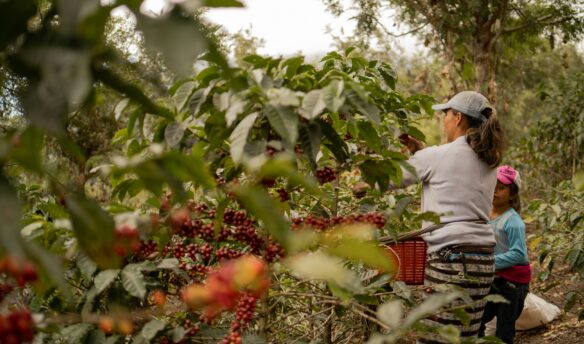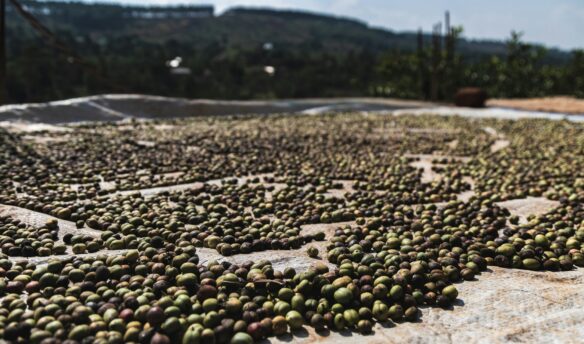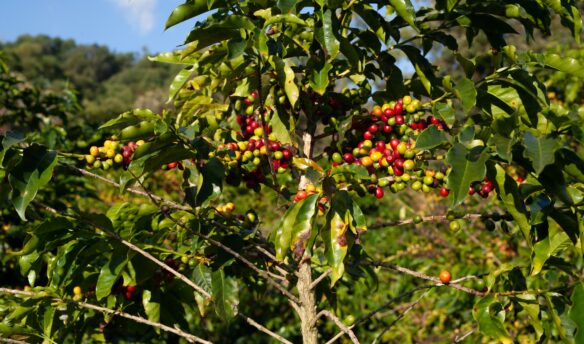A truce sealed with a marmalade sandwich. Plus, Fair Trade USA freezes its price premiums, Nashville workers tell of a “bleak” and “disjointed” coffee industry, and a lethal dose of coffee.
‘Fair Trade USA Freezing Price Minimums, Plans to Revise Model’ – via Daily Coffee News
Fair Trade USA announced it will freeze its green coffee price minimums until the end of 2023. In the same statement, the organization also introduced “Innovation for Impact,” a multi-stakeholder initiative that hopes to revise and redesign its Fair Trade Certified program.
This announcement followed a statement from Fairtrade International (Fair Trade USA is a separate organization) in April when the organization laid out plans to raise its coffee price minimums for certified arabica and robusta coffee. Fairtrade International increased the minimum price of arabica coffee to $1.80, while robusta prices went up to $1.20, a move the organization made “to strengthen protections for coffee farmers around the world amid the intensifying impacts of climate change and growing global economic volatility.”
Although originally under the Fairtrade International umbrella, Fair Trade USA left in 2011 over a dispute about the future of fair trade. Despite this, Fair Trade USA has adopted and followed the premium guidelines set out by Fairtrade International. This will now change as Fair Trade USA looks to reevaluate its program. “If our singular focus in the past was on price and premium, our focus in the future is going to be much more holistically on the wellbeing of the producers and the value to the industry,” Paul Rice, the organization’s founder and CEO, told Daily Coffee News.
The Innovation for Impact initiative “will enlist broad, creative input from industry and producers, aimed at renewing the Fair Trade Certified coffee program for impact through volume and scale,” Fair Trade USA said in an announcement. “The global Fair Trade model, which has not been significantly modified in its 35-year history, will need to evolve and deliver greater value to all participating stakeholders to remain relevant and grow.”
As it looks to redesign its Fair Trade Certified program, Fair Trade USA consulted hundreds of coffee industry stakeholders, from roasters and importers to producer groups that together represent over 84% of all Fair Trade Certified coffee sold in the United States. More than two-thirds of the consumer-side respondents—roasters, retailers, and importers—responded negatively to the suggestion of raising price minimums.
“The overwhelming majority of these companies warned that an increase in price in the current inflationary environment would significantly lower demand and volume over the next 12-24 months, reducing overall producer impact,” the announcement said. The group also noted that while producers were in favor of price increases “in principle, they also expressed concerns about the magnitude of the increase, the timeline for implementation and the risk of reduced market demand.”
‘Colombian Coffee Growers Welcome Truce with ‘Paddington’ Bear’ – via France 24
Coffee producers in the Colombian Andes have historically had an antagonistic relationship with the Spectacled Bear, South America’s last surviving bear species and inspiration for the British national treasure Paddington.
An omnivorous animal (their thoughts on marmalade sandwiches are unknown), the bears have been blamed for ruining crops and killing livestock as habitat encroachment forces them to roam beyond their natural habitat. But a program called Conservamos La Vida (We Preserve Life) seeks to reverse that relationship, offering farmers resources and assistance in exchange for conserving part of their land for the bears.
“The bear saved us,” said Julian Pinilla, a coffee farmer from El Aguila in Colombia’s western Valle del Cauca department. Pinilla and nine neighbors gave around 400 hectares of land as part of the program. “We gave part of our farm for conservation and we see that the forest has increased as well as the species that live there,” Pinilla said. “We no longer have so much conflict.”
The International Union for Conservation of Nature Red List of threatened species classifies the bears as “vulnerable.” Because of land pressures as well as hunting for trade and medicinal purposes, there are only around 8,000 bears left in Colombia, according to the World Wildlife Fund. While often seen as pests, the bears are considered an important “umbrella species” because their wide home range across the Andes means protecting them also protects many other ecosystems.
Conservamos La Vida, started in 2015 by the Wildlife Conservation Society, assists farmers with infrastructure improvements and coffee growing materials, as well as creating an export label—Cafe Oso Andino or Andean Bear Coffee—to help them sell their coffee abroad.
More News
‘Robustas Reach 28-Year High: ICO Report’ – via Global Coffee Report
‘Fairgrounds World’s Fair is Fueling a ‘Metroburb’ in Chicagoland’ – via Daily Coffee News
‘Your Cup of Coffee May Only Get Cheaper Next Year, Roaster Says‘ – via Bloomberg
‘Vietnam’s Coffee Crop Will Decline This Year, Rebound in 2023/24‘ – via STiR Coffee & Tea
‘Victoria Arduino Adds AI Technology to Eagle One Machine‘ – via Global Coffee Report
‘Many High-Street Frappés Contain More Sugar Than a Mars Bar‘ – via the Guardian
‘National Labor Relations Board Judge Orders Starbucks to Re-Hire 4 Fired Pittsburgh Workers’ -via CBS Pittsburgh
The Week in Coffee Unionizing
Labor issues have rocked Nashville’s specialty coffee scene over the past few months as workers try to cope with what they call the city’s “bleak” and “disjointed” coffee industry.
In June, recently unionized workers at Three Brothers Coffee went on strike over allegations of delay tactics from ownership over contract negotiations. That same month, most of the staff members at a Barista Parlor location were fired after voicing concerns about withheld tips and wage theft, prompting the remainder to quit in solidarity and workers from another location to walk out. In all, 24 Barista Parlor workers were fired or quit in a single week. Staff cited a “belittling” work environment and a “toxic dynamic” at the specialty chain, which has been expanding in recent years in partnership with a local real estate investment and development company.
According to interviews with staff from both companies, the working conditions at both Three Brothers Coffee and Barista Parlor are par for the course for coffee workers in the city. “In Nashville you work somewhere for a while until you can’t stand the conditions and you move on,” Paige Lemon, a barista from Three Brothers, told the Tennessee Lookout. “But somebody has to take that spot, and they’re going to be treated bad—if not a lot of times, worse. We have to stop doing that. It’s not about me, actually. That’s why we’re striking. We need to be paid better as an industry.”
The Lookout notes that the current living hourly wage for single adults in Nashville is about $18, but the starting wage at Barista Parlor is $11, and at Three Brothers, it’s $9.50.
In a statement, Barista Parlor owner Andy Mumma said that the company “vehemently denies any claim that the company tolerated or condoned abusive working conditions, withheld tips, or stole wages from its employees.” In 2022, an employee filed an unfair labor practice complaint against the company, claiming her dismissal was due to unionizing activity.
Is Coffee Good For You?
At this point, we’ve established that coffee is—probably, mostly—good for you. But what about the other side: how much coffee would you have to drink for it to be fatal?
According to the Huffington Post, it’s about 70 cups of coffee—although it depends on your weight, genetics, and medical conditions. Other sources put the number at 42 cups, and others still at 30 cups, but whichever number you choose, you’d still have to drink them in a very short amount of time for it to be lethal due to your body’s metabolism.
The lethal amount of caffeine for most people is between five and ten grams (about 50 shots of 5-Hour Energy), and most experts point out it’s extremely hard to overdose on caffeine from drinking it. If the average 8 oz cup of coffee contains 100 mg of caffeine, and you need to drink at least 30 cups to overdose, that’s a little less than two gallons of liquid. Could you drink two gallons of coffee in one go?
And even if you somehow manage to drink that much, your body’s defense mechanisms—in this case, nausea and vomiting—will help prevent you from overdosing.
Dying from consuming caffeine is rare, and from consuming it in liquid form is even more so. Most people who die have ingested caffeine pills or powder—just one teaspoon of pure caffeine powder could be lethal—and the FDA has been alerting consumers (and warning manufacturers) of the dangers of highly concentrated caffeine for years.
So you might as well have that extra cup of coffee. In fact, it’s probably good for you.
Beyond the Headlines
‘In Mexico, Indigenous Women Are Saving Your Morning Coffee, One Plant At A Time’ by Magdalena Rojo















